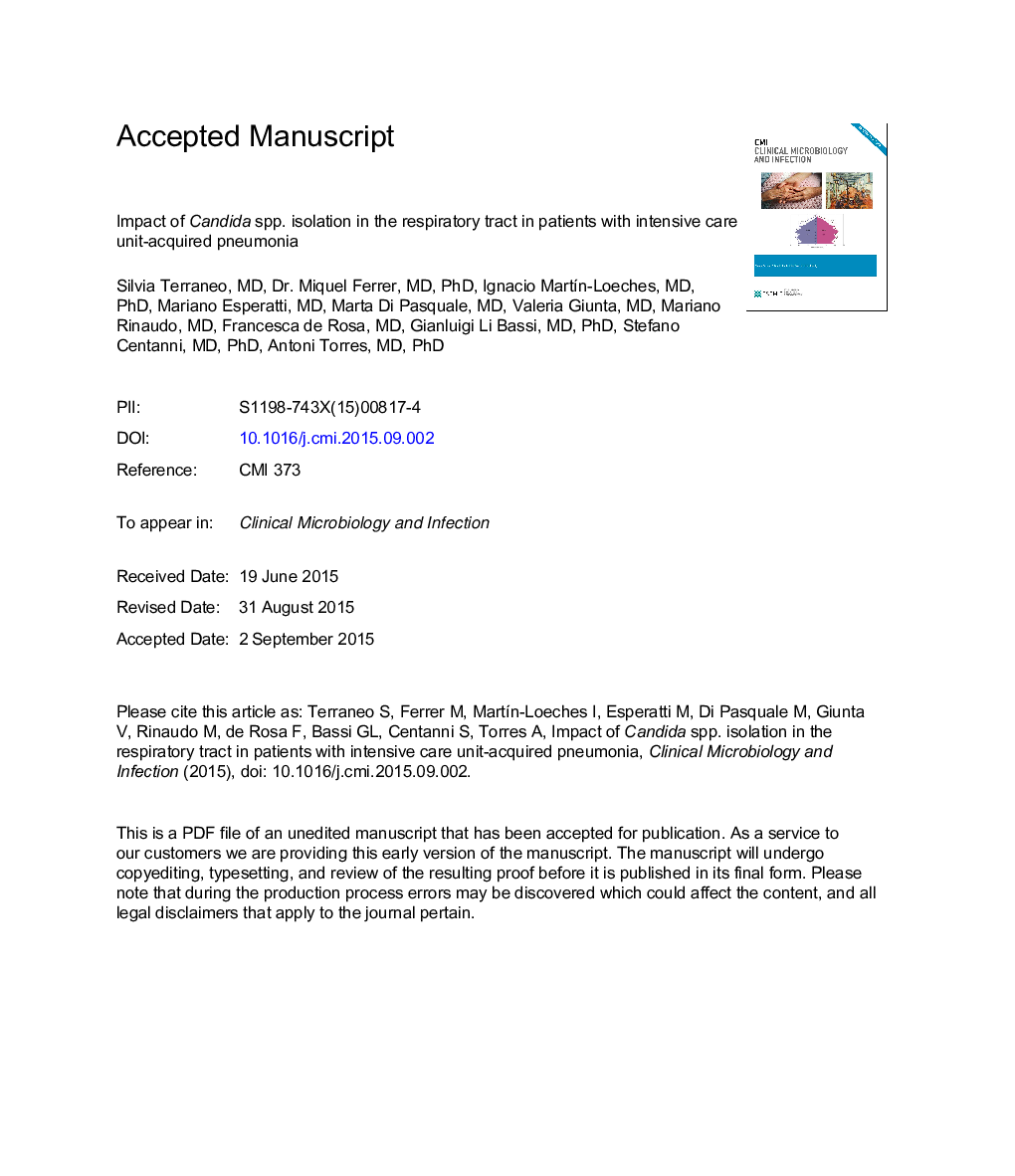| Article ID | Journal | Published Year | Pages | File Type |
|---|---|---|---|---|
| 6129116 | Clinical Microbiology and Infection | 2016 | 34 Pages |
Abstract
In immunocompetent patients with nosocomial pneumonia, the relationship between Candida spp. isolation in respiratory samples and outcomes or association with other pathogens is controversial. We therefore compared the characteristics and outcomes of patients with intensive care unit-acquired pneumonia (ICUAP), with or without Candida spp. isolation in the respiratory tract. In this prospective non-interventional study, we assessed 385 consecutive immunocompetent patients with ICUAP, according to the presence or absence of Candida spp. in lower respiratory tract samples. Candida spp. was isolated in at least one sample in 82 (21%) patients. Patients with Candida spp. had higher severity scores and organ dysfunction at admission and at onset of pneumonia. In multivariate analysis, previous surgery, diabetes mellitus and higher Simplified Acute Physiology Score II at ICU admission independently predicted isolation of Candida spp. There were no significant differences in the rate of specific aetiological pathogens, the systemic inflammatory response, and length of stay between patients with and without Candida spp. Mortality was also similar, even adjusted for potential confounders in propensity-adjusted multivariate analyses (adjusted hazard ratio 1.08, 95% CI 0.57-2.05, p 0.80 for 28-day mortality and adjusted hazard ratio 1.38, 95% CI 0.81-2.35, p 0.24 for 90-day mortality). Antifungal therapy was more frequently prescribed in patients with Candida spp. in respiratory samples but did not influence outcomes. Candida spp. airway isolation in patients with ICUAP is associated with more initial disease severity but does not influence outcomes in these patients, regardless of the use or not of antifungal therapy.
Related Topics
Life Sciences
Immunology and Microbiology
Microbiology
Authors
S. Terraneo, M. Ferrer, I. MartÃn-Loeches, M. Esperatti, M. Di Pasquale, V. Giunta, M. Rinaudo, F. de Rosa, G. Li Bassi, S. Centanni, A. Torres,
